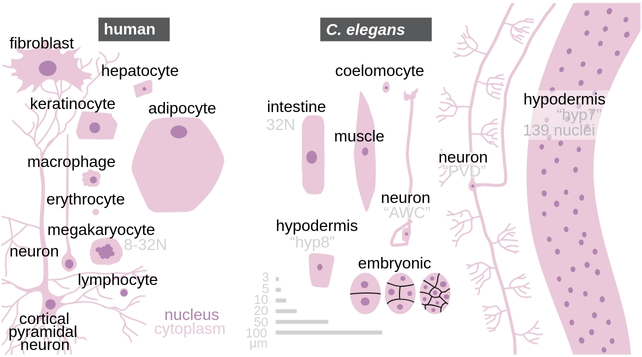The hypertension drug rilmenidine has been shown to slow down aging in worms, an effect that in humans could hypothetically help us live longer and keep us healthier in our latter years.
Previous research has shown rilmenidine mimics the effects of caloric restriction on a cellular level. Reducing available energy while maintaining nutrition within the body has been shown to extend lifespans in several animal models.
Whether this translates to human biology, or is a potential risk to our health, is a topic of ongoing debate. Finding ways to achieve the same benefits without the costs of extreme calorie cutting could lead to new ways to improve health in old age.
In a study published in 2023, young and old Caenorhabditis elegans worms treated with the drug – which is normally used to treat high blood pressure – lived longer and presented higher measures in a variety of health markers in the same way as restricting calories, as the scientists had hoped.
"For the first time, we have been able to show in animals that rilmenidine can increase lifespan," said molecular biogerontologist João Pedro Magalhães, from the University of Birmingham in the UK.
"We are now keen to explore if rilmenidine may have other clinical applications."
The C. elegans worm is a favorite for studies, because many of its genes have similarities to counterparts in our genome. Yet in spite of these similarities, it is still a rather distant relation to humans.

Further tests showed that gene activity associated with caloric restriction could be seen in the kidney and liver tissues of mice treated with rilmenidine.
In other words, some of the changes that caloric restriction gives in animals and thought to confer certain health benefits also appear with a hypertension drug that many people already take.
Another discovery was that a biological signaling receptor called nish-1 was crucial in the effectiveness of rilmenidine. This particular chemical structure could be targeted in future attempts to improve lifespan and slow down aging.
"We found that the lifespan-extending effects of rilmenidine were abolished when nish-1 was deleted," the researchers explained in their paper.
"Critically, rescuing the nish-1 receptor reinstated the increase in lifespan upon treatment with rilmenidine."
Low-calorie diets are hard to follow and come with a variety of side effects, such as hair thinning, dizziness, and brittle bones.
It's early days still, but the thinking is that this hypertension drug could confer the same benefits as a low-calorie diet while being easier on the body.

What makes rilmenidine a promising candidate as an anti-aging drug is that it can be taken orally, it's already widely prescribed, and its side effects are rare and relatively mild (they include palpitations, insomnia, and drowsiness in a few cases).
There's a long way to go yet in figuring out if rilmenidine would work as an anti-aging drug for actual humans, but the early signs in these worm and mice tests are promising. We now know much more about what rilmenidine can do, and how it operates.
"With a global aging population, the benefits of delaying aging, even if slightly, are immense," said Magalhães.
The research was published in Aging Cell.
An earlier version of this article was published in January 2023.
